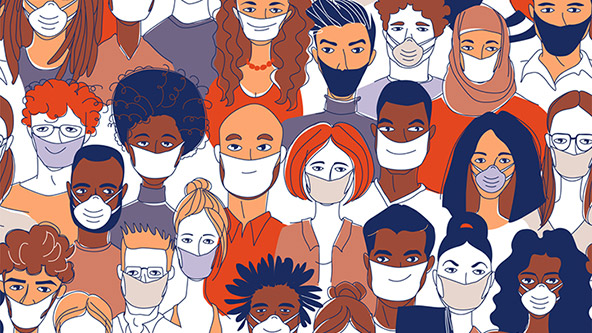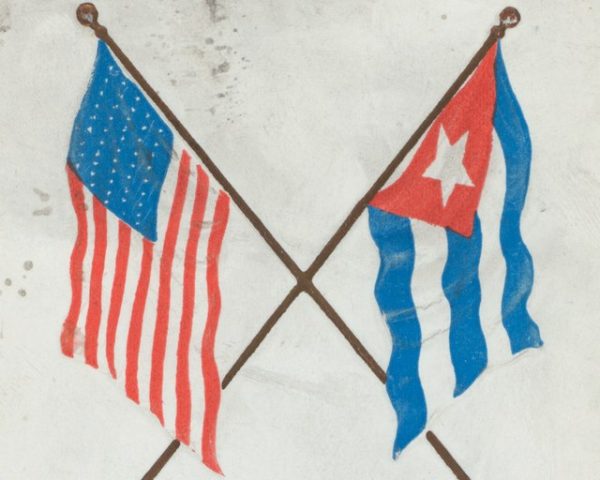UK
The defeat of the miners’ strike 40 years ago ushered in the era of neoliberalism
Lord John Hendy KC delivered the following speech during the Karl Marx Graveside Oration at Highgate Cemetery on Sunday, on behalf of the Marx Memorial Library
It is one of the greatest honours of my life to be invited to speak by the Marx Memorial Library (of which I have the honour to be a trustee), here, where Fredrick Engels stood on March 17 1883 and gave the first oration at Marx’s graveside.
A week ago, Nature magazine published a report of the finding of the earliest known human manufactured tool – no less than 1.4 million years ago. I say “human” but these were the ancestors of modern humans, Homo erectus. Modern humans did not make their appearance until about 140,000 years ago.
Marx would have been fascinated by the scientific advances that made possible the dating of this remarkable artefact (a method based on cosmogenic nuclides).
This tool from a society of hunters and gatherers gives rise to the question: after hundreds of generations, how did we reach a point, less than 10,000 years ago, where the ownership of the means of production of almost everything which sustains us gradually passed out of the hands of those who made and used the tools and into the hands of those who contribute next to their manufacture or usage?
Marx and Engels laid the basis for the explanation of that historical transition, and the means by which the working class are consequentially kept in a perpetual state of oppression.
The fact of that oppression is self-evident, especially today, as I shall highlight. And the causes of it, usually concealed behind a smokescreen of distraction, distortion, fake idols and false scapegoats is revealed more clearly than ever.
But explanation and understanding is not enough; the point is to change the world — as Marx’s words carved on his grave state. For, as Engels said in that first graveside oration, “Marx was before all else a revolutionary. His real mission in life was to contribute, in one way or another, to the overthrow of capitalist society and of the state institutions which it had brought into being, to contribute to the liberation of the modern proletariat…”
Over the 40 years since the commencement of the miners’ strike of 1984-5, it is apposite to reflect on how that goal has receded but how, today, new opportunities present themselves.
From the horrors of the second world war, the so-called post-war consensus based on Keynesianism represented an uneasy accommodation with capitalism which was brought to an abrupt end in the 1970s with the advent of neoliberalism. Neoliberalism is no more than a thin veil of apparent respectability to mask the ugly face of 19th-century unbridled capitalism and greed.
The doctrine became influential among those who rejected the moderate restraints of the post-war consensus. It guided Chile after Augusto Pinochet’s CIA-backed coup in 1973; Britain after Margaret Thatcher’s election in 1979; and the US with Ronald Reagan’s election a year later.
The 1970s are highly significant. In Britain they were the most equal decade ever in terms of wealth and income. Income inequality was never smaller than in 1973. The share of GDP going to wages rather than profits was never greater than in 1976.The share of national income taken by the top 0.1 per cent of the population was never lower than in 1978.
All anathema to the neoliberals.
Neoliberalism had a particular view of trade unions, a view precisely echoing that of 19th-century judges. Trade unions are tolerable. But not if they engage in collective bargaining, backed where necessary by strike action because that “distorts” the so-called “labour market.”
The price of labour should, instead, be left to the freedom of individuals to compete against each other to work for the lowest wage each is prepared to accept to sustain life.
The Conservatives developed a plan to end that distortion. Trade unionism was to be emasculated, workers disempowered and managerial prerogative was to be fortified. After 1979 they had their chance.
The plan had many aspects. Globalisation transferred much heavy industry and manufacturing (and some services) to cheap labour economies. Public services were privatised. Parts of both public and private undertakings were outsourced. Deregulation was the order of the day.
Such policies also ended collective agreements and excluded trade unions. The government abandoned the promotion of collective bargaining (policy since 1896). It encouraged derecognition and relished the “monstering” of trade unions and trade unionists by the right-wing press.
Within three years of taking office, the Tories engineered a “reserve army” of three million unemployed to drive the price of labour down. Increasingly harsh conditions for social security were imposed. Thatcher asserted “there is no such thing as society” to counter working-class solidarity and broke up communities by the sale of council housing and the removal of rent controls.
Part of the strategy to emasculate trade unions was by anti-union legislation. They learned from the failure of the 1971 Industrial Relations Act — beaten by working-class power, the shop stewards movement, uncowed union leaders and the freeing of the Pentonville dockers in 1972 (under threat of a general strike).
The government wanted revenge, in particular, for the success of the 1972 miners’ strike. The wrongful prosecution and conviction of the Shrewsbury pickets later that year (finally vindicated in 2021) illustrated their attitude. They became even more incensed about the miners’ strike of 1974, on which Ted Heath staked and lost the general election.
A central cornerstone of their strategy was to break a major union in an engineered major set-piece strike.
This objective was set out in the Ridley report in June 1977. It considered several unions the government might take on but suggested “the most likely area is coal.”
It recommended that:
• Coal should be stockpiled and imported through non-union ports
• Hauliers should recruit non-union lorry drivers
• Power stations should be adapted for burning oil as well as coal
• Strikers’ benefits should be cut and
• A large, mobile squad of police should be equipped.
The Ridley plan was put into effect. In 1983 Ian MacGregor was appointed as chair of the National Coal Board (NCB) from British Steel where he had overseen the loss of 90,000 jobs. The police were equipped and organised on a national basis. Coal stocks were built up, though the NUM instituted an overtime ban in November 1983.
The government chose the date, and on March 5 1984, the NCB announced that five pits would be subject to “accelerated closure” in just five weeks. Miners at the affected pits walked out. To ensure a wider strike, on March 6, the NCB announced that the formal Colliery Review Procedure was obsolete, and that 20 collieries would close with a loss of 20,000 jobs.
The NUM claimed that the government intended to close more than 70 pits. The claim was denied and MacGregor wrote to every NUM member claiming that Arthur Scargill was deceiving them and there were no plans to close any but the pits so far announced. Cabinet papers released in 2014 showed that MacGregor’s plan was, in fact, to close 75 pits.
A tactic devised by MacGregor and chancellor of the exchequer Nigel Lawson was to encourage, and get rich donors to fund, a multitude of civil legal actions by working miners against the unions to drain them of funds and “progressively tie the union up in knots.”
In the civil actions which followed, I (and a superb legal team) had the honour to represent the NUM and Area unions. There is no doubt that the litigation was an inconvenience for the unions, especially when union funds were sequestrated and put into receivership.
But it did not end or weaken the strike. Nor did the arrest of over 11,000 pickets, the police blockade of Nottinghamshire, or the Orgreave police riot.
Nonetheless, after holding out for a year the miners ultimately lost. The consequences have been disastrous both for the mining communities and for the British working class. Retribution followed. Thatcher resumed the neoliberal agenda: more deindustrialisation, privatisation, outsourcing and anti-union legislation. Unabated by Labour, these policies accelerated after 2020 under the name of austerity.
The success of the neoliberal project is measured by the greatest inequality in Britain since the 1930s. The OECD reports that Britain ties with Bulgaria as the most unequal nations in Europe.
The Condition of the Working Class is better, of course, than it was 180 years when Engels wrote his classic. But it is awful. The real value of wages has not risen since 2007. Half the UK workforce now earn less than the median £28,008 a year, gross; £23,685 net.
Sixty per cent of those on benefits are in working families. Some 14.4 million citizens live in poverty and 3.8 million in destitution. In contrast, the corporations which control energy, food and banking make unprecedented billions in profit. Steps to halt global warming are sacrificed in the name of corporate greed. Private equity companies are asset stripping our high streets and way of life. Infant mortality is rising and life expectancy for the worse off is falling.
But these conditions have produced anger. They have revealed to many the true cause of the crisis they face daily: capitalism.
This presents an opportunity.
To follow Marx’s revolutionary lead, the first step must surely be to build a popular front, led by the trade unions and including all the battles and campaigns which mobilise people: the disabled, the renters, the surfers against sewage, those fighting climate change, those battling ethnic and gender discrimination, those against defunding the arts, those outraged by the genocide in Gaza, and so on.
A common front against a common enemy: capitalism.
Our job is to make it happen.
- This speech was originally published by The Morning Star on March 19th, 2024.
- You can find out more about the work, events and archive of the Marx Memorial Library here; and follow the library on Facebook and Twitter/X.






